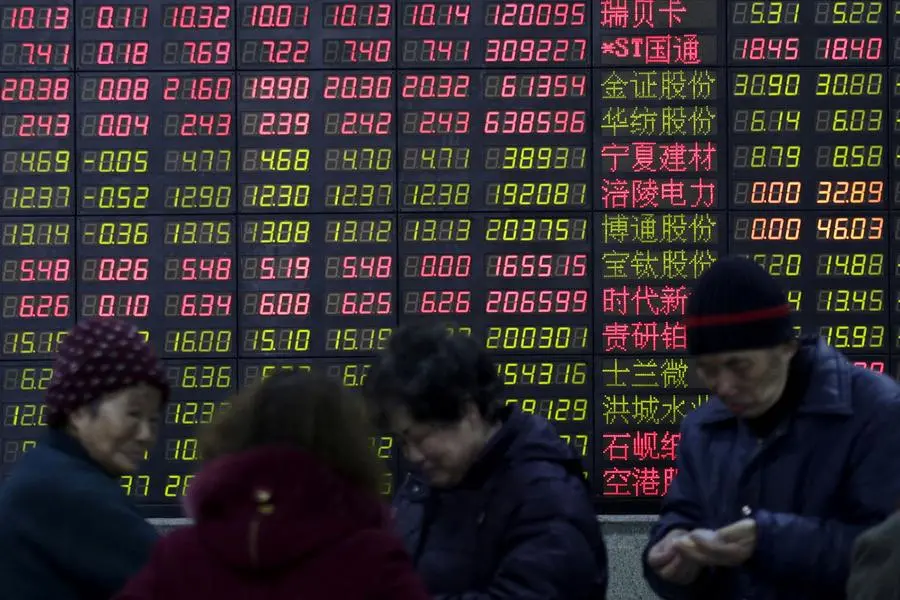PHOTO
HONG KONG - Asian stocks slipped while the U.S. dollar held firm on Wednesday following U.S. inflation data and remarks from central bank officials that have investors worrying interest rates are going to be higher for longer.
European equity markets looked set to follow Asia lower. The pan-region Euro Stoxx 50 futures slipped 0.21%, German DAX futures were down 0.23%, and FTSE futures edged down 0.11%.
Headline U.S. consumer inflation came in at 6.4% year-on-year for January, a bit higher than the 6.2% economists had expected, setting off selling in the bond market and Fed funds futures as hopes that rates could be cut later this year grow dimmer.
Fed funds futures now imply a peak above 5.2% by mid-year and rates above 5% at year's end.
Two-year Treasury yields, which rise when prices fall, climbed nearly nine basis points in New York trade to 4.611%, widening their premium over 10-year rates - an unusual phenomenon that reliably signals recession.
By early afternoon, MSCI's broadest index of Asia-Pacific shares outside Japan was down 1.4%, led by drops of more than 1% in Australia and Hong Kong. Japan's Nikkei share average sank, reversing a small early gain.
S&P 500 futures dropped 0.4% in Asia. Wall Street stocks ended mixed on Tuesday after the inflation reading.
Analysts were bracing for further falls.
"If I combine this earlier (U.S.) Fed rhetoric trying to keep the rates higher for longer and the recent CPI number...then it seems likely that there should be some degree of moderation in the equity markets, both developed markets and Asian markets," said Manishi Raychaudhuri, head of Asia Pacific equity research at BNP Paribas.
He said the dollar might also regain some strength over emerging market currencies, helped by the prospect of U.S. rates staying elevated.
The dollar touched a six-week high of 133.30 Japanese yen overnight and hovered at 133.05 yen on Wednesday. It had a bumpier ride against other currencies following the CPI data, but seems to be pausing following a January slide.
The dollar index against other major currencies was steady at 103.4.
The Australian dollar eased a bit to $0.6938 even as central bank Governor Philip Lowe said rates would need to rise further to contain inflation in remarks to a parliamentary committee.
China's central bank ramped up medium-term liquidity injections as it rolled over maturing policy loans on Wednesday, while keeping the interest rate unchanged, matching market expectations. But the mainland's stock markets slid broadly by early afternoon as investors wait for more signs of whether an expected economic recovery is gaining traction.
Oil prices fell as traders worried about mounting supplies and weakening demand. U.S. crude dipped 0.86% to $78.38 a barrel. Brent crude fell to $84.87.
Gold gave up some early gains by afternoon. Spot gold traded at $1847.5085 per ounce. Bitcoin clung to an overnight bounce at $22,114.
(Editing by Jacqueline Wong and Kim Coghill)




















